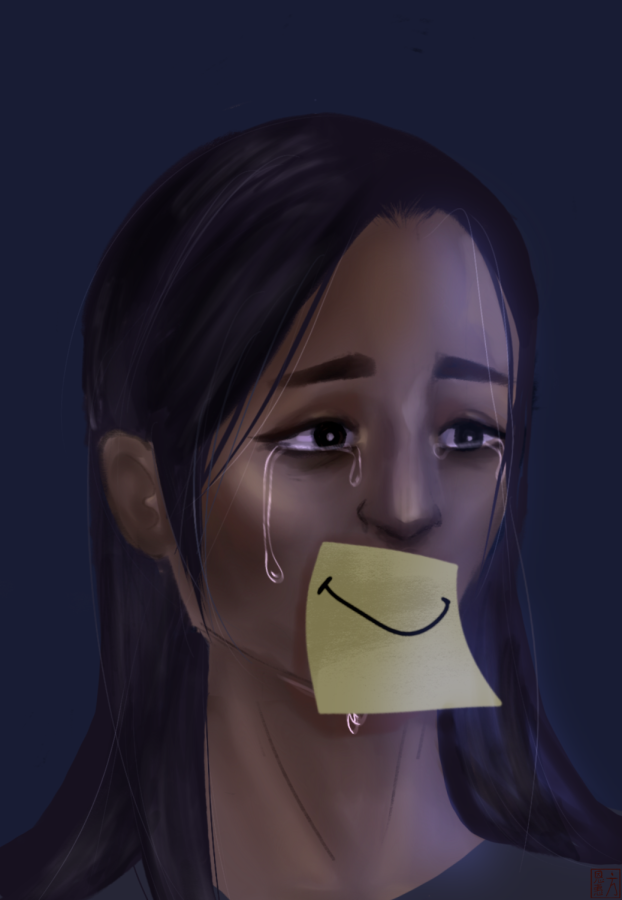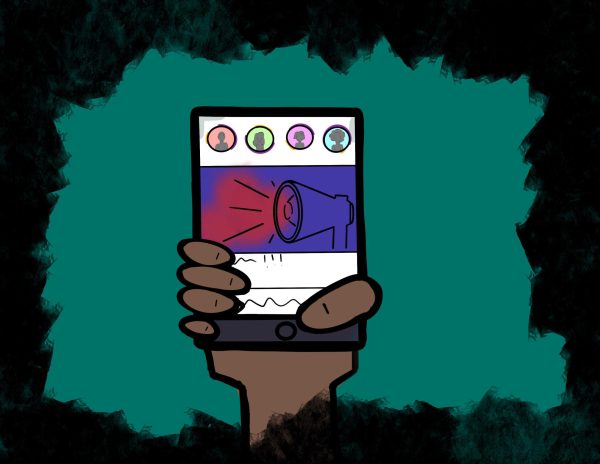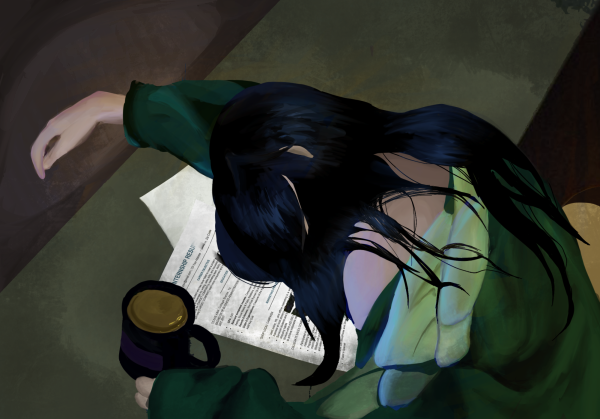Normalization of Poor Mental Health Harmful
Due to the normalization of mental health issues, teens can feel like their issues aren’t important or that it’s just a phase.
For years, mental health advocates have criticized the stigma surrounding the umbrella term of mental health. As more and more people have felt isolated as a result of, and in recovery from, the pandemic, it seems like a sense of unity has been established between people who publicly share and express their struggles with mental health. An increasing number of individuals, whether they are high-profile celebrities, athletes or regular high school students, have used their voices to speak out about their personal struggles with mental health.
While many of these figures have expressed their goals of normalizing mental health, it raises the question of whether or not normalization is actually benefiting those who are struggling. Normalization often comes with a heavy load of watering-down the true battle of mental illness, paired with the appropriate steps to take once diagnosed.
To start off, it’s important to address the “relatability” factor that pushes poor mental health to the forefront of our media. On 1 hand, the growth in discussion about mental health has likely prompted many individuals, both public figures and private citizens, less of a sense of shame surrounding their wellbeing.
It’s great that mental health is becoming something people feel comfortable sharing about. But, we think mental health should not be something that is only thought of as a relatability factor. Singers, Instagram influencers, YouTubers, and celebrities have all taken to their platforms to share their experiences with mental illness. While the things these individuals have gone through shouldn’t be minimized, it is important to recognize the possible impact it is having on those who follow them.
It can easily be reasoned that someone who sees their idol doing a certain thing might try to replicate it in some way. Fans will see their favorite singer, actor, or influencer sharing their experiences with their mental health, and out of a desire to relate to them, will start wrongly thinking of mental illness as something that can bring them closer to their favorite public figure.
To provide a specific scenario, many trending YouTubers today consistently share details about their poor wellbeing and throw around words referring to mental health conditions. While it may seem like these creators are attempting to help people feel recognized through their content, this can further prevent their viewers from evaluating their own wellbeing in a serious way.
Not getting enough sleep or performing poor self-care are things that can be observed in many popular YouTubers’ videos, both being early signs of depression. By casually speaking about these things, viewers are less likely to understand the severity of their conditions or how to recognize their symptoms. Failing to recognize these symptoms can be a setback in someone getting help for their mental health; by normalizing these symptoms, viewers’ ability to improve their wellbeing is damaged.
Celebrities aren’t the only people that oversimplify their feelings for the public. These dead-end discussions relating to normalization can happen on a smaller scale: at home or at school. For example, if you talk about anxiety or depression and your friend responds with “I get anxiety all the time before tests” or “Wow, I’m so depressed right now,” it demeans your feelings to make them seem like they are not worthy of needing help.
Even parents can normalize your feelings so much that they feel invalidated. This can be a driving factor as to why people are scared to get help; they don’t want the people they trust most to reject, or diminish their struggles. The common phrases heard by many kids from their parents, like “Everyone feels sad sometimes” or “Just take a deep breath” make teens feel like their problems aren’t important or serious enough to address.
The idea that mental illness is a normal teenage phase continues to fuel its presence amongst teens by making it seem like it doesn’t need to be taken care of.
While opening the discussion of mental health has been beneficial to many by helping them feel more comfortable with expressing their wellbeing, it is important to acknowledge that mental health should still be taken seriously. Conversations about mental health need to be less of simply sharing daily struggles and more about finding solutions.
When people are more informed, they can more easily recognize the warning signs of distress. However, with these symptoms being over-normalized, the progress made to address them is diminished.
As a society we need to take mental illness for what it is: a serious matter that influences many people worldwide, and continue to have important discussions about how to get support.
Your donation will support the student journalists of Campolindo High School's The Claw. Your contribution will allow us to produce more issues and cover our annual website hosting costs.

Freshman Mia Daly’s passion for freedom in prose drove her to join the writing staff for The Claw.
Daly has always loved writing and English classes....

Freshman Ruthie Stoll is a dancer, tennis player, and foodie. She grew up in a small town in Pennsylvania, moved to the Bay when she was 4, and just graduated...

Sophomore Grace Franklin has an interest in art and improving her digital art skills through The Claw Art Staff. Franklin has a deep interest in video...


